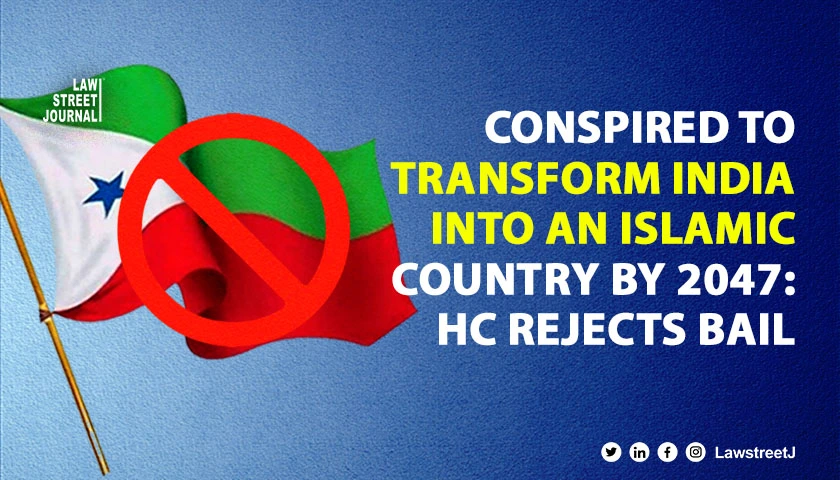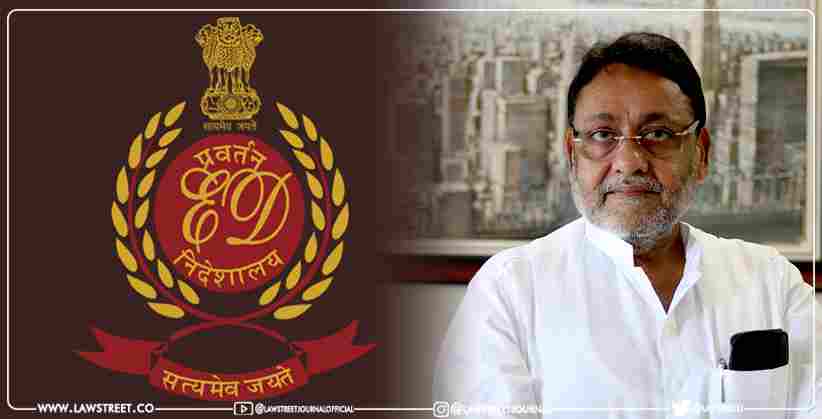Mumbai: The Bombay High Court, on Wednesday, denied bail to three individuals linked to the banned terrorist organization, the Popular Front of India (PFI). The court cited plans by the accused and the organization PFI to convert India into an Islamic state by 2047 as the basis for the denial.
The division bench, consisting of Justice AS Gadkari and Justice Shyam Chandak, reviewed the bail pleas of Razi Ahmad Khan, Unais Umar Khayyam Patel, and Kayyum Abdul Shaikh. They upheld the earlier decision of the Special Judge, Nashik, who had rejected their bail applications.
The prosecution argued that the three accused attended a secret PFI meeting where young Muslims were radicalized. It was alleged that during the meeting, several instances of crimes against Muslims, such as mob lynching, were discussed. The prosecution further claimed that the meeting involved discussions on uniting Muslims and waging war against the State of Maharashtra and the Government of India.
Also Read: 'National security always paramount,' SC cancels bail of PFI members [Read Judgment]
In its ruling, the Bombay High Court stated that there was evidence indicating that the accused attempted to transform India into an Islamic state. The court observed, Record of the investigation indicates that the Appellants in connivance with other Accused persons conspired to overawe the Government by use of criminal force. The first information report is self-eloquent. There is more than sufficient material available on record in the form of statements of witnesses and the documents seized from the electronic devices of the Accused persons that, they indulged in the activity of inciting like-minded people to join them to overthrow the Government by use of criminal force. They also conspired to transform India into an Islamic country by 2047. They are not only propagators but actively intending to implement the Vision-2047 document of their organization.
The court added, There are statements of more than 20 witnesses, multiple conversations between members of the Association inter-se and overwhelming electronic evidence to demonstrate that, the Appellants in connivance with other accused persons have systematically undertaken activities which are detrimental to the interest and integrity of the nationEven if no overt act or violations has been carried out till today, the material on record clearly indicates that prima facie evidence of conspiracy to commit offence/s punishable under Section 121 of the IPC is made out.
The high court stated that a review of the Vision-2047 paper reveals a strategy to transform India into an Islamic state using various methods.
The accused have been charged under sections 121-A (conspiracy to commit offenses against the state), 153-A (promoting enmity between different groups), 120-B (criminal conspiracy) of the IPC, and 13(1)(b) of UAPA.
The court affirmed the trial courts decision to deny bail, citing a strong prima facie case and the risk of evidence tampering. The court decided that the trial court was correct in denying the bail applications since there was a strong prima facie case against the appellants. Furthermore, it expressed concern that releasing the appellants on bail could result in evidence tampering. As a result, the court dismissed the appeals and upheld the trial courts decisions.
Senior Advocates Ashok Mundargi, Mihir Desai, and Advocate Hasnain Kazi represented the appellants, while APP Ashvini A. Takalkar represented the respondents.
Case Title: Razi Ahmed Khan v. The State of Maharashtra
Appearance:
Appellants: Senior Advocates Ashok Mundargi, Mihir Desai, Advocates Hasnain Kazi, Pravada Raut, Shraddha Vavhal, Saipan Shaikh, Hafizuddin Kazi, Zeeshan Khan, Athar Qureshi, and Raeed Kazi.
Respondents: APP Ashwini A. Takalkar








![Husband Can Also Claim Alimony/Maintenance From Wife: Bombay High Court Orders Woman To Pay Alimony To Ex-Husband [Read Order]](/secure/uploads/2022/04/lj_2823_Divorce.jpg)








